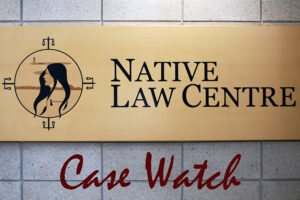Appeal dismissed. The chief coroner and a judge have concurrent, equivalent and continuing jurisdiction to order an inquest whenever it is advisable, regardless of the steps previously taken by the chief coroner.
This is an appeal by the chief coroner from an order that an inquest be held into Cynthia Blackjack’s death, a First Nation woman from Little Salmon Carmacks First Nation (“LSCFN”). Ms. Blackjack, after having repeatedly attended a local health centre, died during her transport to Whitehorse on-board a medevac aircraft. The chief coroner assumed conduct of the investigation under the Coroners Act, and after her investigation, she decided not to hold an inquest into the circumstances surrounding Ms. Blackjack’s death. The LSCFN brought allegations of racial discrimination in the provision of health care services to the chief coroner’s attention and asked for her reconsideration of an inquest. Despite the allegations of systemic discrimination, the chief coroner maintained her decision. The LSCFN and the mother of Ms. Blackjack then applied to a judge under s 10 of the Coroners Act for an order that an inquest be held, which was granted. The chief coroner appealed from this order and to have it set aside. She contends that the chambers judge lacks the jurisdiction to make the order and has failed to accord her decision due deference.
There are two distinct functions for an inquest by Canadian coroners into the circumstances surrounding questionable deaths in their communities (Faber v The Queen, [1976] 2 SCR 9, (“Faber”); Charlie v Yukon Territory (Chief Coroner), 2013 YKCA 11, (“Charlie”)): 1) there is an investigative function that is narrow and case specific that involves an inquiry into the identity of the deceased and how, when and where that death occurred and; 2) the public-interest function, which is broader and social. This entails exposing systemic failings that cause or contribute to preventable death, and recommends systemic changes to reduce the risk to human life. It satisfies the community that the circumstances surrounding questionable deaths have received due attention from accountable public authorities (Faber; Pierre v McRae, 2011 ONCA 187, (“Pierre”)).
Coroners perform these functions, with and without the assistance of juries, within parameters established by legislation. When an inquest is conducted, it is inquisitorial in nature and it functions as an extension of the initial investigative process (Charlie). Like coroners, juries do not determine legal responsibility, as inquests also fulfill the broader public-interest function. Over time, Canadian courts have come to recognize this function as increasingly significant for several reasons, including the need to allay public suspicions, remove doubts about questionable deaths and contribute to justice being both done and seen to be done (Faber; Pierre). This is often particularly important where the deceased was a vulnerable person. It is also particularly apparent in this case given Ms. Blackjack’s possible vulnerability as a First Nation citizen and the nature of the care she received in the period preceding her death, regardless of whether a causal link was established between those circumstances and the medical cause of her death.
The applicable principles of statutory interpretation are uncontroversial. As stated in s 10 of the Interpretation Act, the provisions of the Coroners Act must be given such fair, large and liberal interpretation as best insures the attainment of its objects. The words of s 10 must be read in the entire context, in the grammatical and ordinary sense, harmoniously with the scheme and objects of the Coroners Act and the intention of the legislature (Rizzo & Rizzo Shoes Ltd. (Re), [1998] 1 SCR 27). The sorts of circumstances that surround a questionable death which may engage the functions of an inquest are potentially diverse and difficult to identify in the abstract. That there is good reason to believe a deceased person received substandard care in and around the time of death, could be a matter of legitimate public concern. It could involve systemic failings and may warrant public scrutiny, regardless of what precisely caused the death from a purely medical perspective.
The chief coroner and a judge have concurrent, equivalent and continuing jurisdiction to order an inquest whenever it is advisable, regardless of the steps previously taken by the chief coroner. Although the chief coroner has other powers under the Coroners Act, they are powers of investigation and administration, neither of which fall within the purview of a judge and all of which a deputy chief coroner can fulfill when the chief coroner is unavailable. The fact that the chief coroner is also granted other statutory powers under the Coroners Act does not suggest the legislature intended to subordinate the jurisdiction of a judge to that of the chief coroner under s 10. The words of s 10 also indicate a concurrent and equivalent jurisdiction that is continuing in nature. The plain meaning of its words is that both the chief coroner and a judge have ongoing jurisdiction to direct an inquest, if advisable, regardless of what has previously transpired. In effect, s 10 allows either the chief coroner or a judge to order an inquest into a death where the chief coroner has previously declined to do so.
Continuing jurisdiction of this sort is unusual in an adversarial system of justice. Nevertheless, it fits comfortably within the overall scheme of the Coroners Act. An inquest does not serve to determine rights and fault. There is no risk of double jeopardy or unduly prolonged exposure to liability posed by continuing jurisdiction of this nature. There is no risk of inconsistent orders if the chief coroner and a judge have concurrent, equivalent and continuing jurisdiction. This is so because s 10 jurisdiction is only exercised when one or the other directs that an inquest be held. While either or both may choose not to exercise s 10 jurisdiction faced with a particular set of circumstances, the Coroners Act does not enable either to order that an inquest shall not be held.


